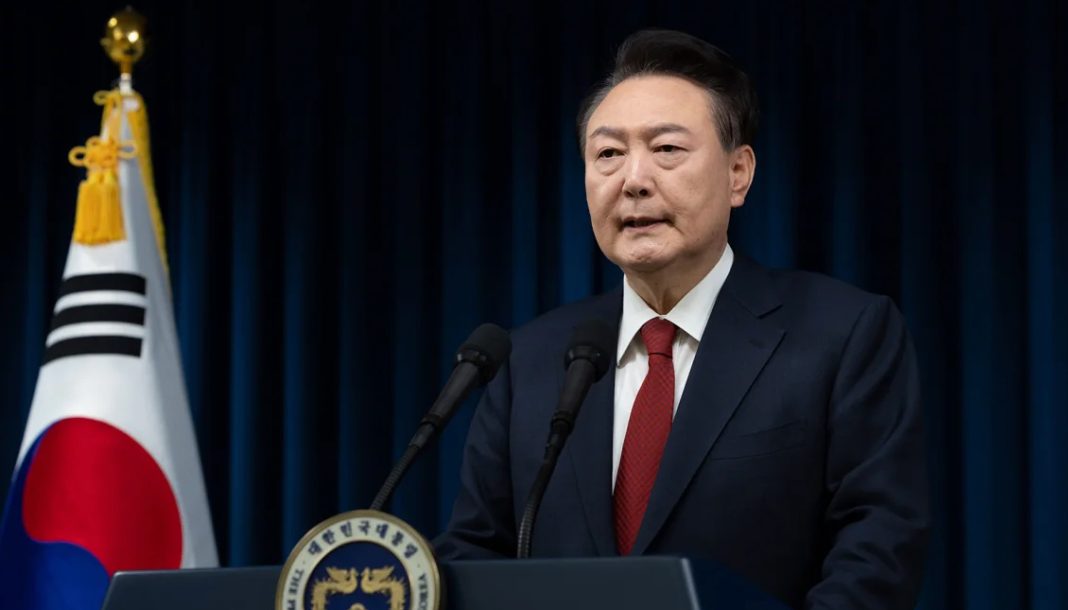SEOUL, South Korea — South Korean lawmakers voted on Saturday, December 14, 2024, to impeach President Yoon Suk Yeol following his controversial attempt to impose martial law, an event that has deeply shaken the country’s democratic foundations.
The National Assembly voted 204 in favour and 85 against, with three abstentions and eight invalid votes, surpassing the two-thirds majority required to pass the motion.
All 300 members of the unicameral legislature participated in the historic vote.
“Dear people, now go and enjoy the year-end parties,” Woo Won-sik, the speaker of the National Assembly, said after announcing the results.
The motion succeeded with support from opposition lawmakers and several members of Yoon’s People Power Party (PPP).
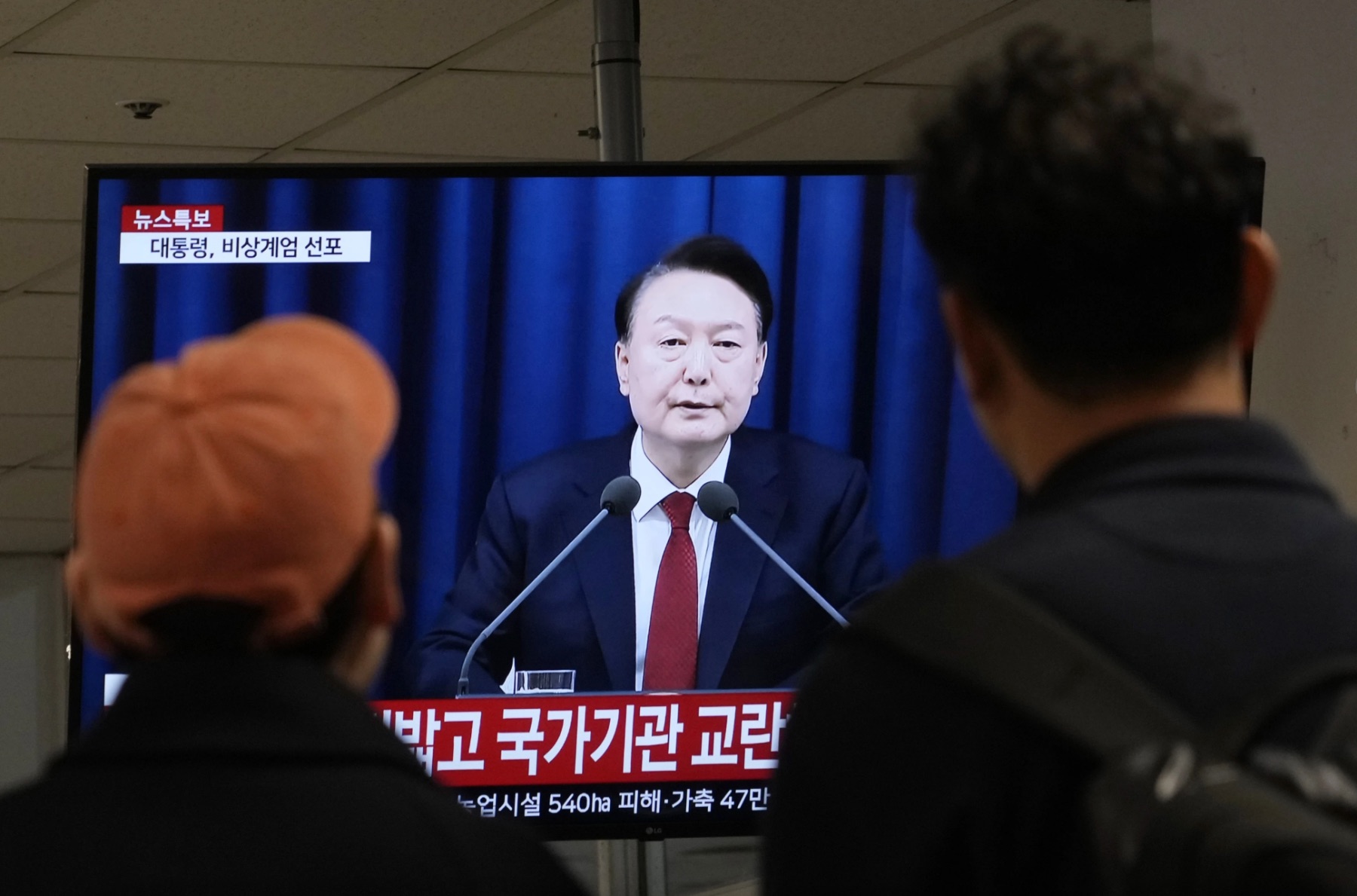
A prior impeachment vote failed after it was boycotted by PPP members, but mounting public disapproval of Yoon’s leadership appears to have swayed some party loyalists.
Yoon’s impeachment follows his declaration of emergency martial law on 3 December, a move that banned political activity and censored the media.
Yoon withdrew the order hours later after lawmakers unanimously rejected it. This move drew widespread condemnation and rapidly eroded his public support.
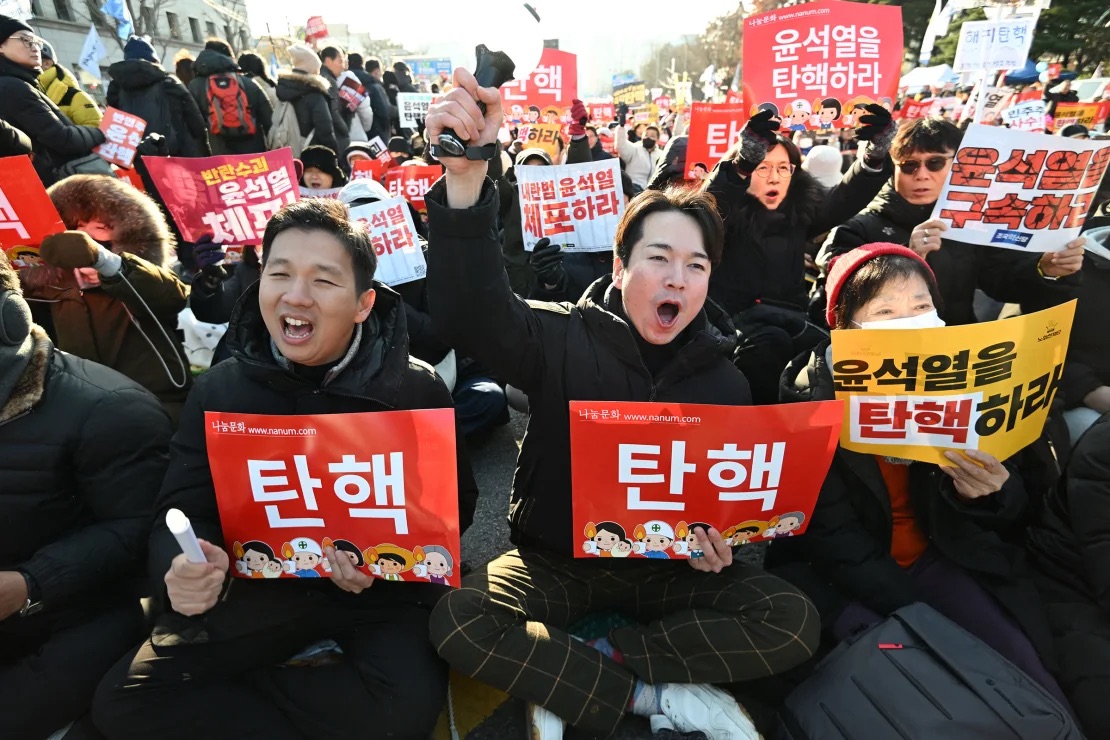
Opposition Gains Ground
Yoon, 63, has faced growing criticism for his governance, particularly from the opposition-controlled parliament.
According to a Gallup Korea poll released Friday, his approval rating plummeted to a record low of 11%.
“All we have to think of today is our country South Korea and the people of South Korea,” said Han Dong-hoon, a senior PPP leader, urging his colleagues to prioritise the nation over party loyalty.
In contrast, newly elected PPP floor leader Kweon Seong-dong remained formally opposed to the impeachment, aligning with Yoon, who has accused the opposition of paralysing the government.
The motion now heads to South Korea’s Constitutional Court, which has six months to determine whether to uphold the impeachment.
In the interim, Prime Minister Han Duck-soo and PPP leaders have assumed responsibility for managing state affairs.
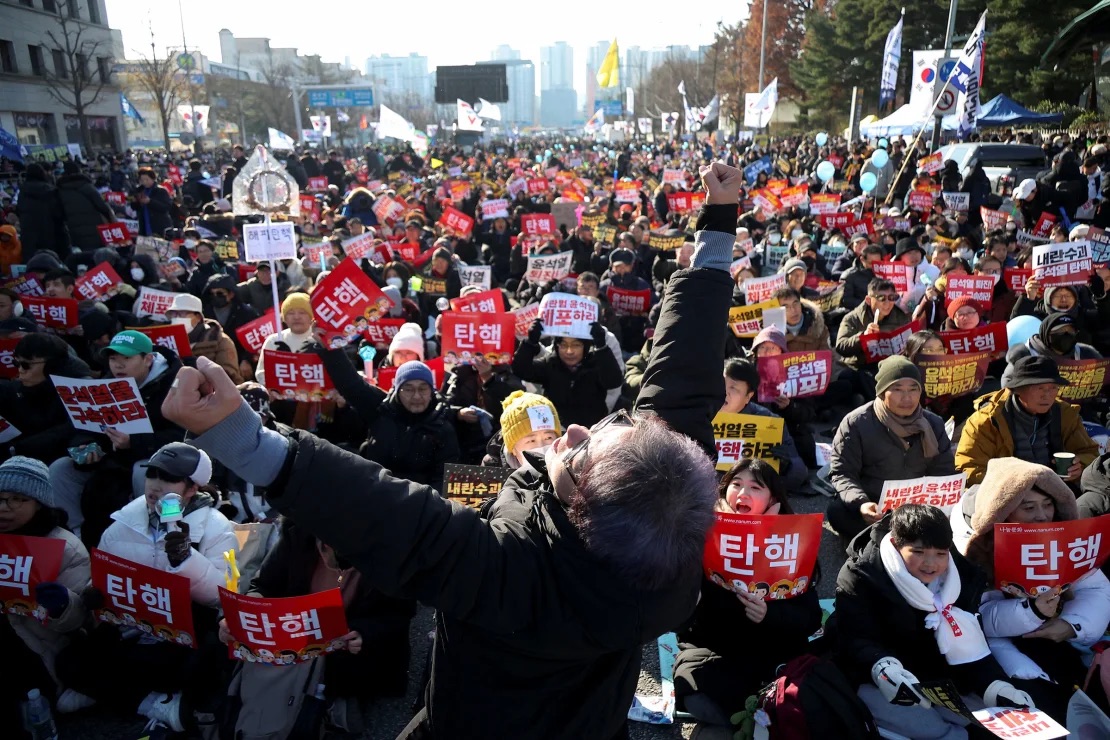
Public Outcry
In Seoul, a large crowd gathered in front of the National Assembly, braving chilly weather to demand Yoon’s impeachment.
Some protesters carried banners, while others waved K-pop light sticks.
Park Geun-ha, a member of the Korean University Students’ Progressive Alliance, addressed the rally, saying, “We are asking for President Yoon’s immediate impeachment and arrest.”
K-pop artist IU supported the demonstrators by providing food and drinks, saying she hoped to “warm up” rallygoers.
Volunteers organised a website to help protesters locate facilities and resources, underscoring the broad public mobilisation against Yoon’s leadership.
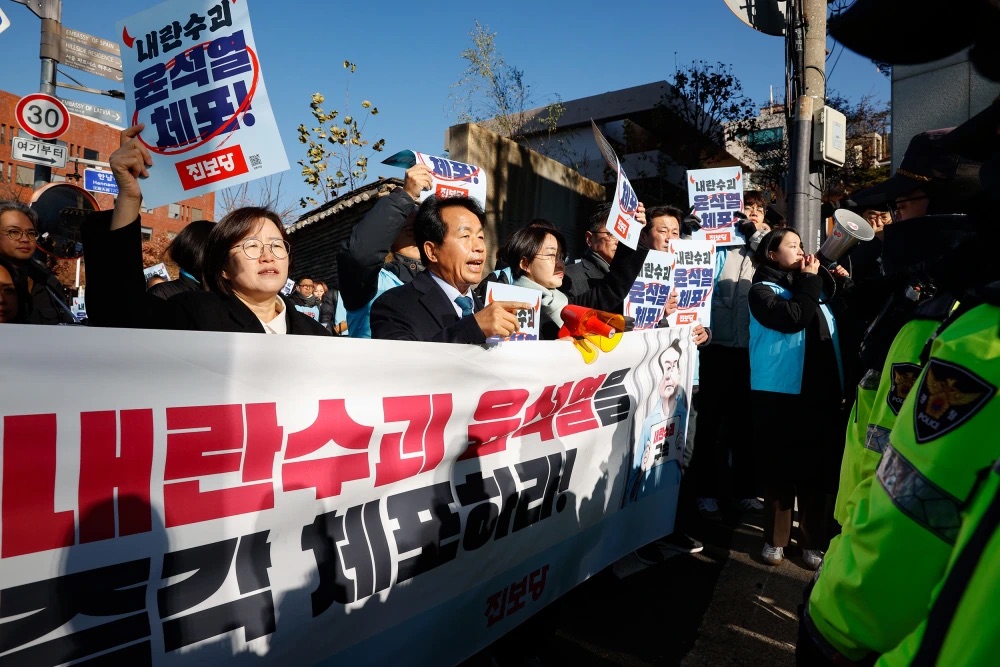
International Concerns
The crisis has drawn international attention, particularly from South Korea’s allies, including the United States.
Lee Jae-myung, leader of the opposition Democratic Party, thanked the U.S. for its support of South Korean democracy.
Foreign Minister Cho Tae-yul assured lawmakers that efforts would be made to restore international trust and maintain the U.S.-South Korea alliance, critical to regional security.
Meanwhile, North Korea seized on the political turmoil, labelling Yoon’s administration a “puppet regime” in state media.
Yoon’s hardline stance on Pyongyang has been a defining feature of his presidency.
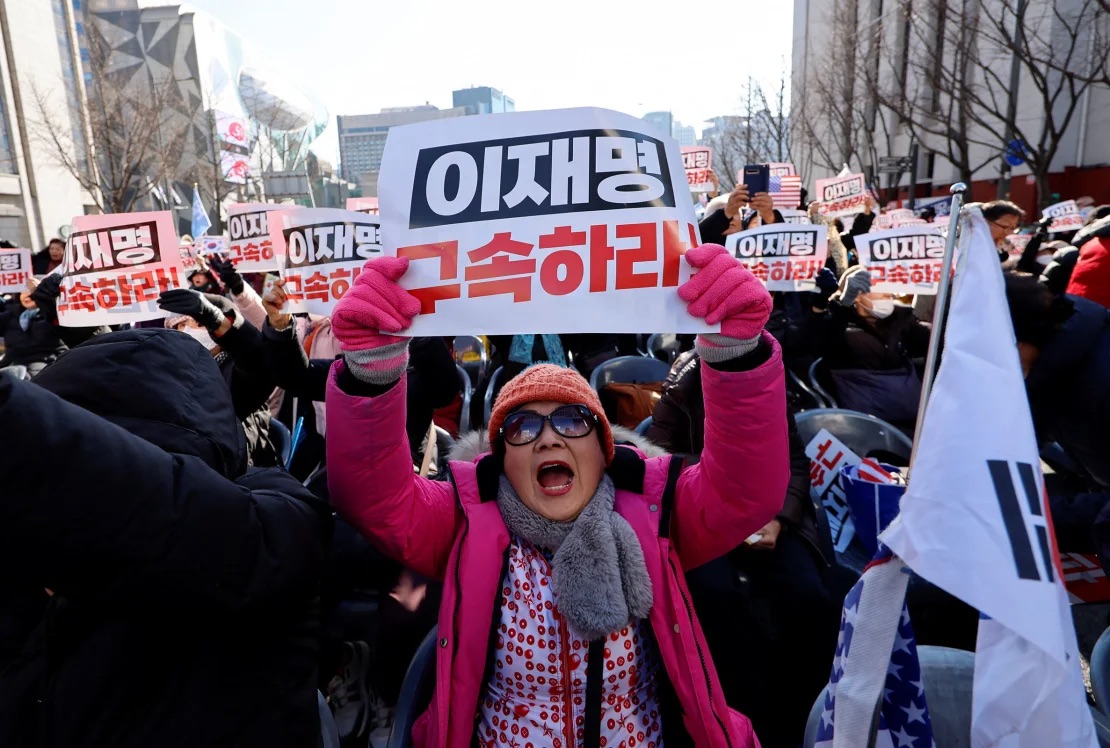
Path Ahead
If the Constitutional Court upholds the impeachment, Yoon will become the second South Korean president to be removed from office.
His predecessor, Park Geun-hye, was impeached in 2017 over a corruption scandal.
For now, Yoon remains defiant. In a speech Thursday, he accused the opposition of jeopardising national security and cited unverified claims of election hacking by North Korea.
Lee Jae-myung dismissed Yoon’s allegations, calling his martial law declaration “a declaration of war against the people.”
As South Korea awaits the court’s decision, the country faces a critical moment, with its democratic stability and international reputation hanging in the balance.

